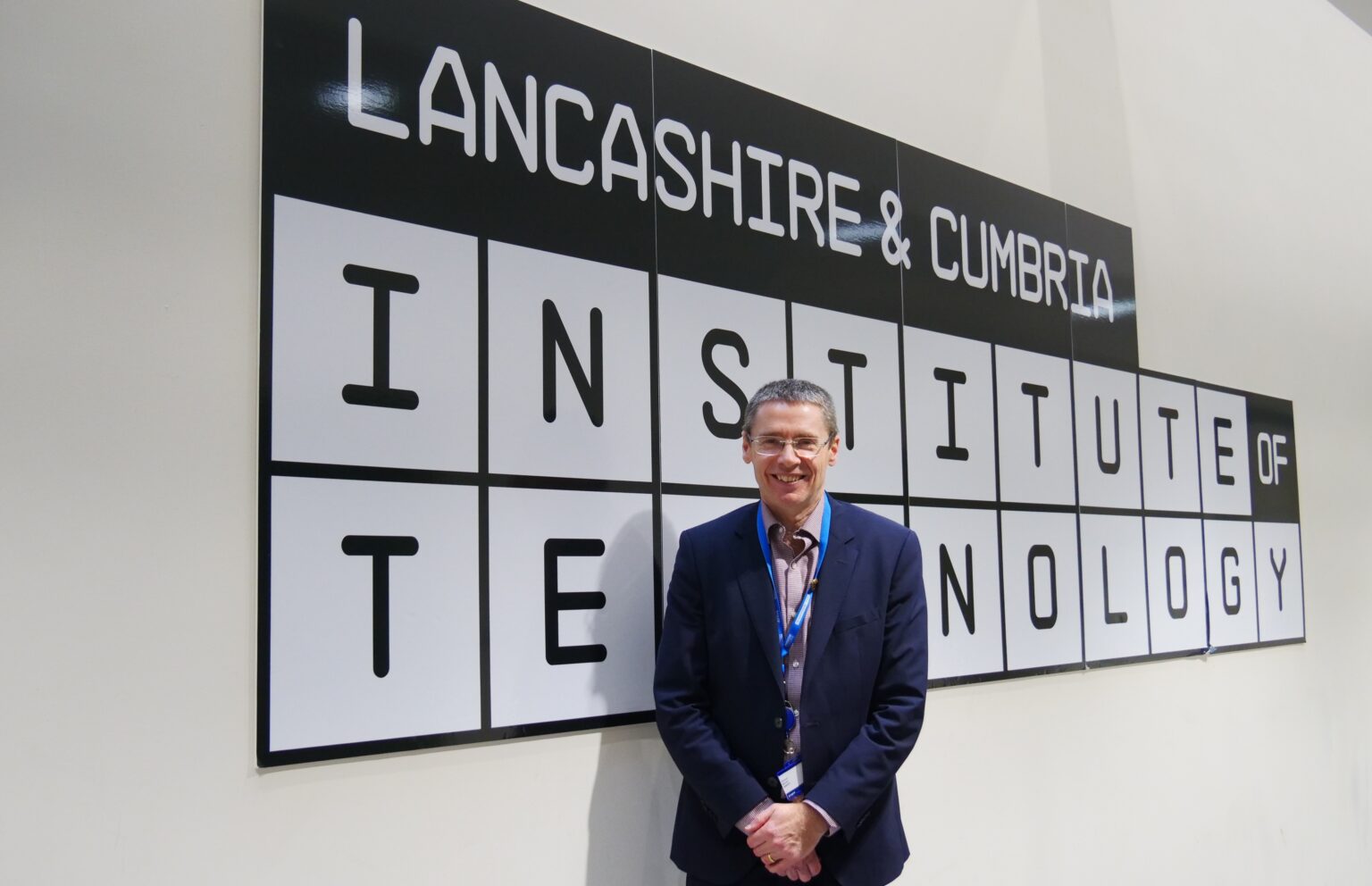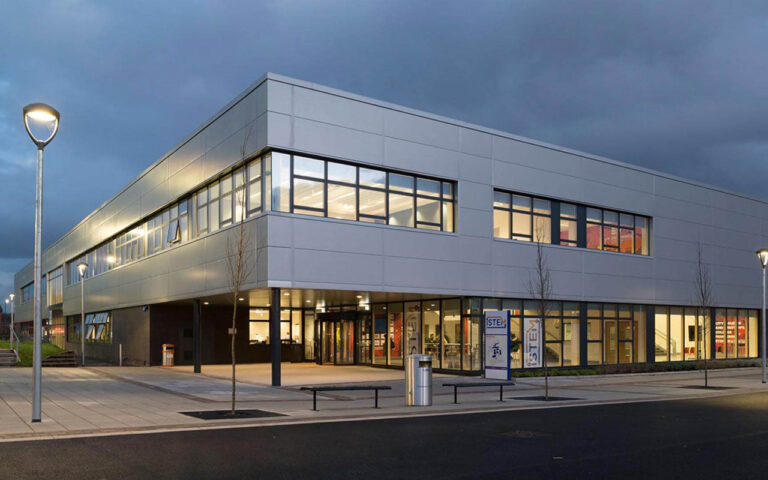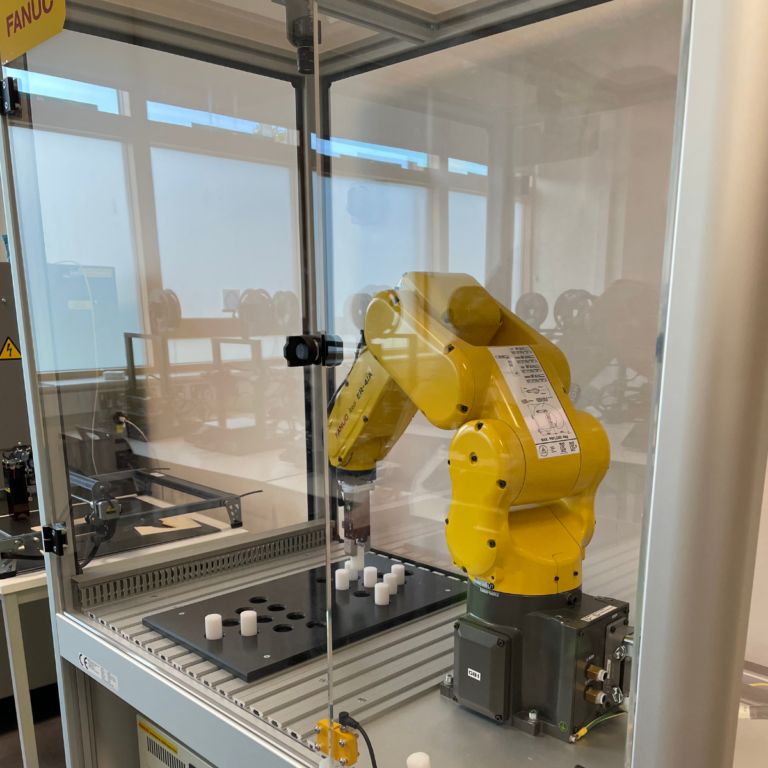
Learners at the Lancashire and Cumbria Institute of Technology’s Preston College site are treated like employees from day one.
Arrive at college late because you missed the bus? Not a valid excuse. Failed to bring the right PPE for your construction course? Unacceptable.
They’re the softer skills employers need from their workforces, and the IoT is teaching them from the beginning.
“Employers are crying out for attitude and accountability,” says Simon Nixon, Principal of Preston College and a huge advocate for what the IoT can achieve. “The message we get from employers is that it’s not always about technical skills, because they can be taught in the workplace and in the college in a relatively straightforward way.
“It’s those skills people need to be work ready that are really valued by the businesses we work with – that work ethic, the ability to arrive on time and have good workplace behaviours – and we incorporate these into our IoT courses from the beginning. We have the same expectations of them that an employer would.”
At Preston College, staff instil what they call the five As – attendance, achievement, aspiration, attitude and accountability.
These are life skills not everyone naturally has but are essential for these students to succeed once they go into employment.
“These wider employability skills are something further education does really well,” says Simon. “If you’re taking a construction course, we teach you not only how to be, for example, a bricklayer but also how to be disciplined in the workplace, turn up on time, have the right kit, and pay attention to health and safety briefings.”

Then there are the wider societal lessons – tutorials that share the dangers of crime, alcohol and drugs, and, importantly, how this can impact on future careers and prospects.
It’s an approach that the college has always taken, and is central to the work of the Lancashire and Cumbria Institute of Technology, established to provide the employees businesses need.
Discovering these needs is being done in a number of ways. Preston College has always worked closely with businesses but has established advisory groups, which meet regularly to feedback industry needs.
“We bring in employers to meet with curriculum leaders and say ‘this is what we’re offering, does it meet your need?’” says Simon. “If what we’re offering doesn’t then we can redesign the courses together – there’s constant interaction.”
With industry needs changing all the time due to new technologies, market demands and other influences, it must be difficult for an organisation like a college to respond quickly enough? That’s not the case, says Simon. “We know some of our IoT specialist areas have skills shortages, so if we have the staffing and resources in place we can probably respond pretty quickly to meet those business needs,” he says. “Having a module or course in place the following year is a worst-case scenario but we’d like to try and see what we can do in a matter of months.’
While some of the IoT key sectors are emerging subjects, other areas are well established in working closely with industry and being able to flex accordingly – construction and engineering being good examples.

The college is keen to expand health and social care going forward, with a mental health foundation degree starting in September that Simon says will be critical to the marketplace due to rising mental health issues.
“We see it in students and across society that mental health issues are increasing, so anything we can do to make a contribution reducing these issues will be a real focus for us over the next few years,” he says.
It’s clear being a founding partner college of the IoT is something Preston College is grasping with both hands. There’s the opportunity to take its employer partnerships to the next level but also collaborate on a wider scale.
“It’s an exciting project – the chance to work in collaboration with college and university partners, as well as with other IoTs, is exciting,” says Simon. “We’ve achieved our targets in both years of the IoT and now we can build on that by encouraging students and businesses to come to us because we’re part of the IoT.”
Studying with the IoT is less expensive than university and, for learners and businesses, has lots of advantages through the breadth of what is on offer, the industry-leading IoT equipment and the flexibility to meet needs.
“My message to businesses would be ‘talk to us, make sure we understand what your needs are and if we can’t meet that now, we’ll find a way to meet that need in the future to make sure the area gets the skills it needs’,” adds Simon.